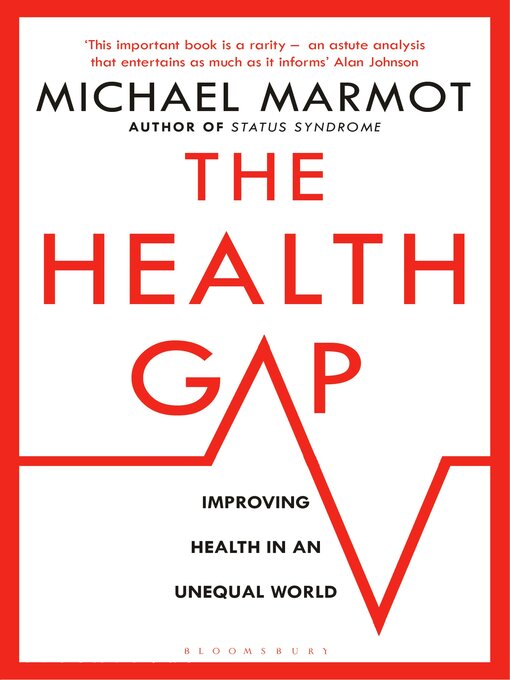There are dramatic differences in health between countries and within countries. But this is not a simple matter of rich and poor. A poor man in Glasgow is rich compared to the average Indian, but the Glaswegian's life expectancy is 8 years shorter. The Indian is dying of infectious disease linked to his poverty; the Glaswegian of violent death, suicide, heart disease linked to a rich country's version of disadvantage. In all countries, people at relative social disadvantage suffer health disadvantage, dramatically so. Within countries, the higher the social status of individuals the better is their health.
These health inequalities defy usual explanations. Conventional approaches to improving health have emphasised access to technical solutions – improved medical care, sanitation, and control of disease vectors; or behaviours – smoking, drinking – obesity, linked to diabetes, heart disease and cancer. These approaches only go so far. Creating the conditions for people to lead flourishing lives, and thus empowering individuals and communities, is key to reduction of health inequalities.
In addition to the scale of material success, your position in the social hierarchy also directly affects your health, the higher you are on the social scale, the longer you will live and the better your health will be. As people change rank, so their health risk changes.
What makes these health inequalities unjust is that evidence from round the world shows we know what to do to make them smaller. This new evidence is compelling. It has the potential to change radically the way we think about health, and indeed society.
-
Creators
-
Publisher
-
Release date
September 10, 2015 -
Formats
-
OverDrive Read
- ISBN: 9781408857984
- File size: 2783 KB
-
EPUB ebook
- ISBN: 9781408857984
- File size: 2694 KB
-
-
Languages
- English
-
Reviews
-
Library Journal
October 15, 2015
Renowned epidemiologist Marmot (epidemiology & public health, Univ. Coll. London; president, World Medical Assn.; Status Syndrome) aims to "share knowledge on how the working of society impacts on health and the unjust distribution of health and what we can do about it." The relationship between inequalities in social status and inequalities in health is described in detail through the use of the findings of the World Health Organization's Commission on Social Determinants of Health and numerous other studies. Using the phrase "social gradient in health" for this relationship, the author creates a strong case for policy changes that address human needs for autonomy, empowerment, and freedom in order to improve the well-being of people globally who are living in vulnerable and disadvantaged circumstances. Influences on health that are discussed include India's caste system, gender inequity, the need to combat gangs, unreasonable debt repayments, etc. VERDICT Recommended for public and academic libraries with studies in public health, medicine, and social justice.--Karen Venturella, Union Cty. Coll. Libs, Cranford, NJ
Copyright 2015 Library Journal, LLC Used with permission.
-
Booklist
November 1, 2015
British epidemiologist Marmot (Status Syndrome, 2007), president of the World Medical Association, convincingly details how socioeconomic inequities lead to health inequities. People in poorer countries are sicker and die younger. Today, 20 years is the gap in life expectancy between women in India and in the U.S. Marmot offers many thought-provoking ideas. For example, when the World Bank interviewed people in 47 countries about what relief of poverty meant to them, they were told: opportunity, empowerment, and security. (Those three words sound like a good goal for everyone.) To improve their citizens' well-being, leaders need to talk more about jobs than about such diseases as malaria and AIDS. Unemployment is also hazardous to health because it puts people at increased risk of depression and suicide. Marmot passionately argues for people everywhere to promote a more just distribution of health. To reduce the inequities in power, money, and resources that lead to inequities in physical and mental conditions, he implores, Do something. Like a good courtroom attorney, Marmot builds a strong case and calls for action.(Reprinted with permission of Booklist, copyright 2015, American Library Association.)
-
Loading
Why is availability limited?
×Availability can change throughout the month based on the library's budget. You can still place a hold on the title, and your hold will be automatically filled as soon as the title is available again.
The Kindle Book format for this title is not supported on:
×Read-along ebook
×The OverDrive Read format of this ebook has professional narration that plays while you read in your browser. Learn more here.


